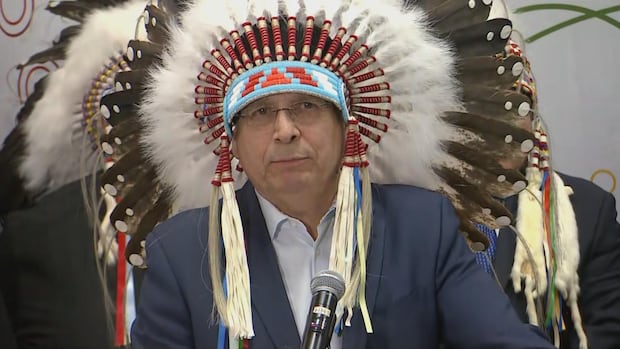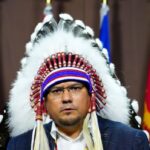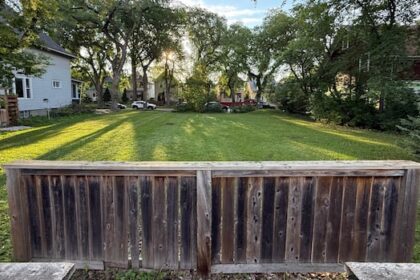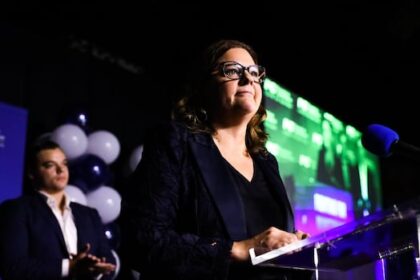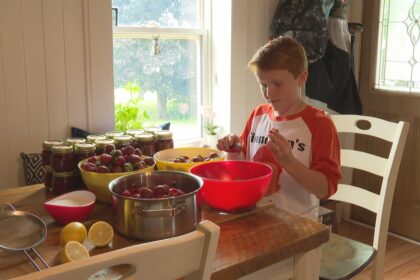ManitobaA new national report acknowledging the prevalence of anti-Indigenous racism in sport in Canada speaks to a longstanding reality experienced by many Indigenous athletes, coaches, and parents in Manitoba.Sagkeeng Chief E.J. Fontaine says negative experiences of athletes, parents, fans are all too commonJustin Fiacconi · CBC News · Posted: Sep 17, 2025 6:00 AM EDT | Last Updated: September 17Sagkeeng Anicinabe Chief E.J. Fontaine says he’s glad the prevalence of anti-Indigenous racism is reflected in the Future of Sport in Canada Commission’s preliminary report. (CBC)A new national report acknowledging the prevalence of anti-Indigenous racism in sport in Canada speaks to a longstanding reality experienced by many Indigenous athletes, coaches, and parents in Manitoba.The Future of Sport in Canada Commission’s preliminary report stated that every Indigenous community and organization the commission engaged, “shared experiences of anti-Indigenous racism and taunting in mainstream sport settings.” Indigenous youth athletes also shared experiences of “being targeted and bullied during games and in sporting events.”For the chief of Sagkeeng Anicinabe Nation northeast of Winnipeg, those experiences ring true.”Our community goes through a lot of racism at hockey games and at different sports events and I’m really happy that it’s been documented in that report because it’s an issue that has to be addressed sooner than later,” Chief E.J Fontaine told CBC.The Future of Sport in Canada Commission was set up in 2024 to conduct an “independent and forward-looking review of Canada’s sport system.”Justice Lise Maisonneuve, right, who leads the Future of Sport in Canada Commission, participates in a news conference with Minister of Sport and Physical Activity Carla Qualtrough, at the National Press Theatre in Ottawa when the commission was set up in 2024. (Justin Tang/The Canadian Press)Since then, the commission has engaged a wide variety of stakeholders across the sport system in Canada to hear stories, root out abuse, and learn how the sport system in Canada can be improved.The preliminary report released late last month made 71 recommendations to enhance safe sport and to improve the sport system in Canada — a system the commission concludes is “broken.”Many Indigenous parents told the commission their kids have been subjected to racial slurs, differential treatment, and exclusion from activities, according to the report.CBC spoke with Elyssa McIvor, whose son played on a youth hockey team called the Norquay Knights — which was predominantly made up of First Nations and Métis children, and organized through the North End Hockey Program.McIvor recalled how she was in the stands during a game several years ago when an incident occurred on the ice after a player on her son’s team was body-checked from behind. According to McIvor, a scrum ensued on the ice, and she heard a non-Indigenous parent from the other team using a racist slur to describe a Knights player while yelling at the referee.Elyssa McIvor says she’s seen first-hand the prevalence of racism while sitting in the stands for her son’s hockey games. (Prabhjot Singh/CBC)McIvor also shared an incident where a non-Indigenous parent from the opposing team went up to the penalty box where her nephew was sitting and allegedly spat on him.”When people in the stands are making comments, especially about race and being racist, it certainly doesn’t feel good to be called a ‘dirty Indian’ or to be told to go burn some wagon,” said McIvor.The Indigenous experience shared in the national report echoed a 2021 study by a Winnipeg-based anti-racism in sport initiative where participants spoke of “a culture of exclusion and racism making these spaces unsafe for many children, youth, and adults in Winnipeg. The 2021 study also said “there is a culture of minimizing, rejecting and ignoring racist incidents when they are reported.””It’s a pervasive issue that’s systematically deep into communities, and for some reason it’s taking a long time to get rid of that, to eradicate racism in sports,” said Fontaine.Fontaine says his community faced racism late last year when “a loud minority” — believed to be intoxicated — from the visiting team disrupted a youth hockey game between the Sagkeeng Hawks and the La Broquerie Habs.The disruption eventually turned into a physical and verbal altercation among parents, where racial slurs were directed toward members of the Sagkeeng community, according to the Sagkeeng Anicinabe government.Together with the Assembly of Manitoba Chiefs, Fontaine called for Hockey Manitoba to conduct a comprehensive investigation into the incident. “I know there’s two sides to every story, but when things escalate into violence, it’s a big problem,” he said.Nearly a year later, Fontaine says he would have liked more than an email from the executive director of Hockey Manitoba at the time, offering the chance to meet about the incident — an email Fontaine didn’t respond to. “If they took it seriously, they would come and meet with us in the community, talk to us face-to-face and some see our community,” said Fontaine. “We would welcome them with open arms to come and talk about racism and sports.”In an emailed response, Hockey Manitoba said that an investigation was conducted which resulted in the suspension of some individuals based on the information they had available, though they didn’t respond to CBC’s request for more information about the suspensions.Hockey Manitoba added, in response to the Future of Sport in Canada Commission findings, it “remains committed to addressing issues of maltreatment within the sport including incidents of racism towards Indigenous groups who comprise a significant and valuable portion of the Hockey Manitoba membership.”Two separate sports streamsThe commission also indicated part of the reason why the Indigenous sport system in Canada was created was because Indigenous people “were not included in the mainstream sport system” — resulting in the development of two parallel sport systems that coexist independently of each other. According to one sport-focused NGO, another reason for the two separate streams is because the mainstream sport system — primarily consisting of provincial and national sport organizations — prioritizes sporting excellence and pathways to provincial and national competition. Whereas the Indigenous sport system generally favours social and community development, which in many cases is preferred by Indigenous youth. “I do think that both streams; the Indigenous stream and the mainstream, are essential as long as mainstream spaces don’t feel safe to Indigenous folks,” said Jayme Menzies, founder and director of Agoojin Volleyball. Agoojin Volleyball is an Indigenous-led volleyball initiative meant to enhance access to sport and create a safe space for Indigenous girls and two-spirited youth, and to help provide a pathway into leadership positions and coaching roles, said Menzies.”On the surface, mainstream sport would not appear to be exclusionary to Indigenous people but it’s more about acceptance and safety and feeling welcome in spaces,” said Menzies.Similarly, Fontaine acknowledged that acts of racism in sport are not always out in the open, but it’s a ‘feeling’ — one he’s felt as far back as 50 years ago when he was growing up playing sports. “Sport is supposed to be fun,” said Fontaine. “It’s supposed to be a good time for making friends, and for creating good memories — but for us it certainly didn’t do that.” National report reflects reality of racism in Manitoba: chiefChief E.J. Fontaine of Sagkeeng First Nation says there are ‘a lot of truths’ in a new national report acknowledging the presence of anti-Indigenous racism in the Canadian sport system. ABOUT THE AUTHORJustin Fiacconi is an intern at CBC News. He can be reached at justin.fiacconi@cbc.ca.
Monday, 22 Dec 2025
Canada – The Illusion
Search
Have an existing account?
Sign In
© 2022 Foxiz News Network. Ruby Design Company. All Rights Reserved.
You May also Like
- More News:
- history
- Standing Bear Network
- John Gonzalez
- ᐊᔭᐦᑊ ayahp — It happened
- Creation
- Beneath the Water
- Olympic gold medal
- Jim Thorpe
- type O blood
- the bringer of life
- Raven
- Wás’agi
- NoiseCat
- 'Sugarcane'
- The rivers still sing
- ᑲᓂᐸᐏᐟ ᒪᐢᑿ
- ᐅᑳᐤ okâw — We remember
- ᐊᓂᓈᐯᐃᐧᐣ aninâpêwin — Truth
- This is what it means to be human.
- Nokoma


